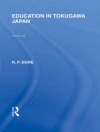This book offers a critical analysis of radicalization in Pakistan by deconstructing the global and the official state narratives designed to restrain Pakistani radicalization.
Chapters are centered around three distinct themes: educational norms, religious practices and geo-political aspects of radicalization to examine the prevalent state and global practices which propagate Pakistani radicalization discourse. The book argues that there is both a global agenda, which presents Pakistan as the epicenter and sponsor of terrorism, and a domestic, or official, agenda that portrays Pakistan as the state which sacrificed and suffered the most in the recent War on Terror, which allow the country to gain sympathy as a victim. Delineating both conflicting agendas through a critical analysis of global and state practices in order to understand the myths and narratives of radicalization in Pakistan constructed by powerful elites, the book enables readers to gain a better understanding of this phenomenon.
A multidisciplinary critical approach to comprehending radicalization in Pakistan with innovative prescriptions for counter-radicalization policy, this book will be of interest to researchers working in the fields of International Relations, Security Studies, Asian Politics, as well as Religious Studies and Education, in particular in the context of South Asia.












